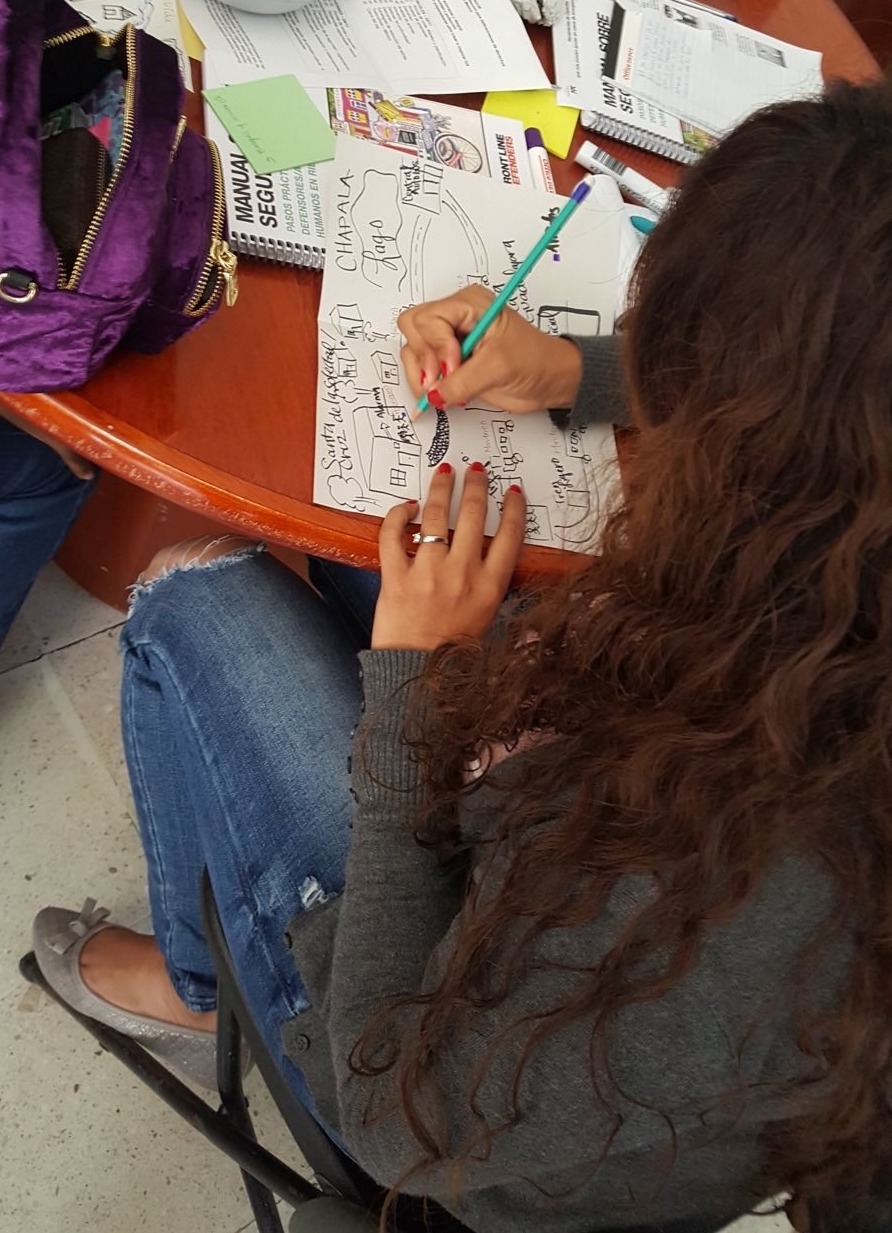|
OBJECTIVE |
To create an understanding of the causes and effects of insecurity in the work and life of an HRD, and the issues and areas where they have options |
|
TIMING |
75 minutes |
|
MATERIALS NEEDED |
Flip charts & marker pens |
|
OPTIONAL MATERIALS |
Slide featuring the group work questions |
 When planning and facilitating this session, it is important to consistently apply an intersectional lens to each participant's identity and experiences, and their protection needs. Overlapping systems of discrimination and privilege, such as gender, sexual orientation, religion, disability, racial and/or ethnic origin, economic status/class, marital status, citizenship, age and physical appearance, can have a profound impact on human rights defenders' and their communities' perception of and experience with risks and protection.
When planning and facilitating this session, it is important to consistently apply an intersectional lens to each participant's identity and experiences, and their protection needs. Overlapping systems of discrimination and privilege, such as gender, sexual orientation, religion, disability, racial and/or ethnic origin, economic status/class, marital status, citizenship, age and physical appearance, can have a profound impact on human rights defenders' and their communities' perception of and experience with risks and protection.
Introduction:
- State the Objective
- opportunity to discuss in small groups how the insecurity you experience in your work as a Human Rights Defender affects different aspects of your work and personal life
- look at how insecurity affects HOW you work – which tactics you choose and which you reject, and how you may have to choose between effectiveness and security
- also look at WHO you work with – witnesses, clients, partner organisations etc – and how the security situation affects those working relationships
- Finally we will look closer to home – and consider how insecurity affects HRDs personally – and how it affects the families, the friends and the relationships
- Facilitator asks participants to consider:
What does security mean for me?
(your answer can be the starting statement for your personal security plan)
Facilitator splits the group into 3 small groups
Handout with Questions for Small Groups
Group work
- Each of 3 groups should begin with a question: Question 1 for group 1; Question 2 for Group 2 etc. When they finish their question, they should move on to the next consecutive question
- Each group should choose someone to prepare to give feedback.
Feedback and discussion
- The facilitator takes feedback from the groups
Closing remarks
To conclude, the facilitator may make some of the following points as appropriate:
- challenge misunderstandings/misconceptions that have arisen (eg that thinking about security is too difficult/threatening)
- security is a double-edged blade – threats to it can often lead to renewed commitment to the work, but living with insecurity for too long can lead to burn-out
- security is not only freedom from threats – it may cover political security, economic security, and well-being
- threats to security do not only affect work – they affect the whole life of any HRD The next sessions will look at how these threats can be minimised
When to use this module:
- Modules 1-5 need to happen at the beginning of the workshop. Then there needs to be group work to let participants find their voices, and discuss pertinent topics.
- This module is especially useful for HRDs who have not considered protection previously, and/or who may need more time to build trust, eg LGBTIQ+ HRDs who do not normally work together.
